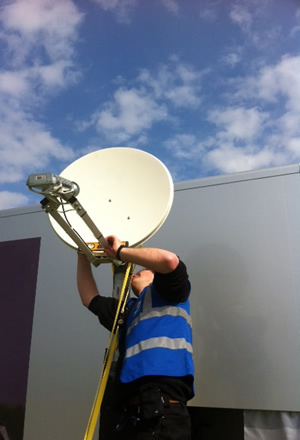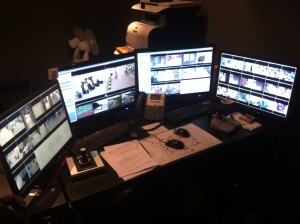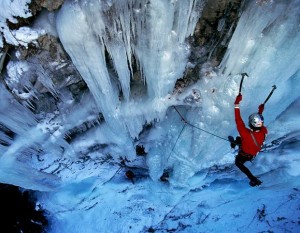Etherlive provide temporary telephony services for events using a mixture of VoIP (Voice over IP) and direct copper (BT) connections.
Direct copper phones are required by some events for emergency liaison teams but most other telephony can be provided using VoIP technology. When requiring traditional BT lines Etherlive’s provisioning team arrange orders, installation dates and work directly with BT Openreach ensuring everything is installed as required.
VoIP at its simplest is a phone service delivered over a network and is the way nearly all modern installations are completed. By providing service over the site network and the internet, phone call costs are very low rate (or free in the case of national calls) and because the handsets are powered from the network they can be quickly installed or added as a last minute requirement. Modern VoIP phones also come with advanced features including speakerphones, ring groups, hunt groups,voice mail and provide a wired internet connection for computers.
Etherlive deploy two types of VoIP handset used for events; wired and wireless.
Wired VoIP phones are for those who wish to have a traditional desk or conference phone in a room or wish to assign a phone to a specific department. Handsets can also be fitted with headsets for those working on high call volume desks.
Wireless VoIP phones are based on the latest standards of business DECT technology and can therefore can roam throughout the event. These handsets are splash proof and provide a good alternative for site & production managers who need to be on the move where the cellular network is not good enough to rely on a mobile phone. The handsets communicate using the same system as the wired versions so internal calls are free and external calls are at a low rate.
For larger deployments a VoIP PBX (the modern equivalent to a telephone exchange in a small box) is installed onsite and can be linked between sites or to an existing office. This unit manages all calls, voicemail and Interactive Voice Response (IVR) features.
For more information please look at our VoIP page or contact us where we will be pleased to help you find the right solution for your event.






